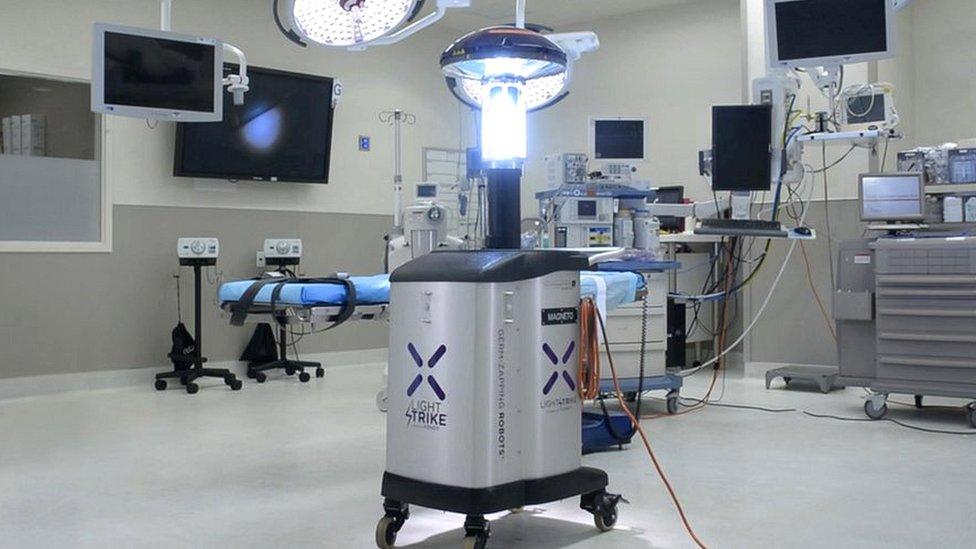Coronavirus innovation: Swansea scientists speed-clean ambulance
- Published
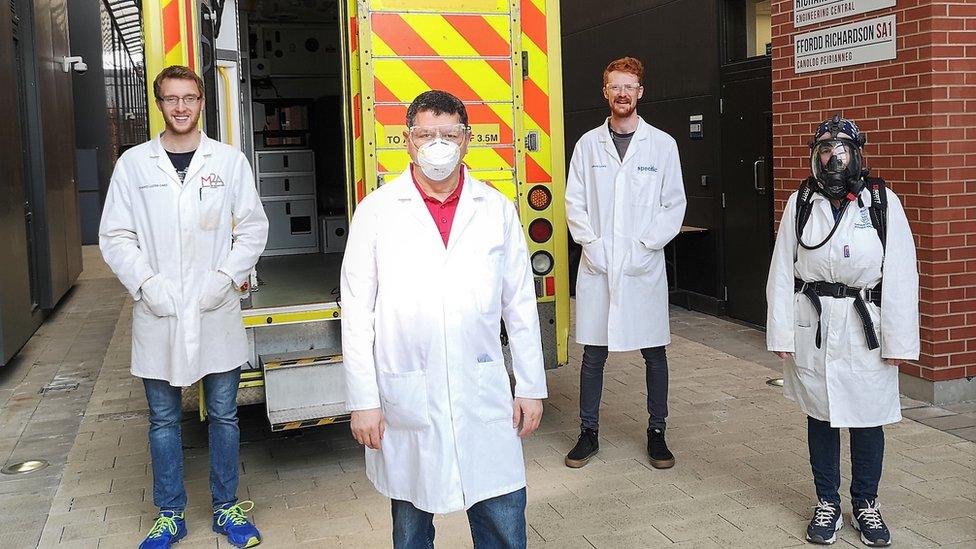
The team hope the system could be scaled up to decontaminate hospitals and schools
An innovative system to speed-clean ambulances used to transport patients with coronavirus has been developed by scientists in less than two weeks.
Cleaning the vehicles by hand can take 45 minutes and is potentially dangerous to workers.
Now Swansea University researchers have developed a new system which could cut that to less than 20 minutes.
Chedly Tizaoui said the technology could be used to decontaminate hospitals and schools.
The new system, using rapid release gases to penetrate all areas of the vehicle, has been developed by researchers from the university's College of Engineering.
Dr Tizaoui, chemical engineer and principal investigator of the project said the gases were released in controlled conditions and would "penetrate every nook and cranny of the vehicle almost instantly".
"The chemistry of the gases destroy any viruses or bacteria present," he said.
"A second step is then introduced in order to neutralise the active chemicals, and after a short period to allow them to disperse, the ambulance is ready for the next call in under 20 minutes."
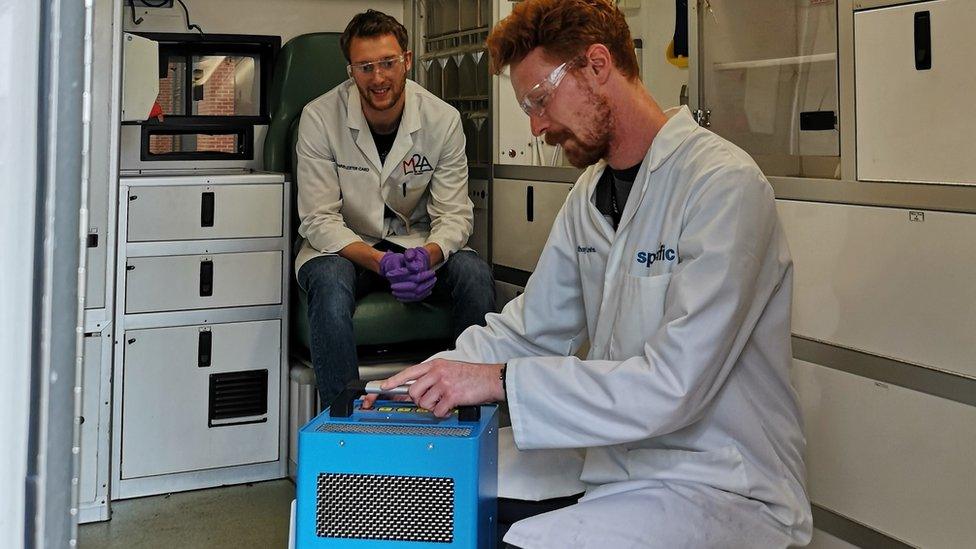
Anthony Lewis and Ed Lester-Card testing a pump that would be used for cleaning
Dr Tizaoui said the precise combination of gases was a commercial secret, but they would be made available to all the public services needing them.
His team have tested the new system on a vehicle at the university's Bay Campus.
The next step is to create a system of storage and application for the gases which can be easily distributed to ambulance stations, and operated by crews with minimal training.
Dr Tizaoui said the system could be in use on the front line within months, and could eventually be used for decontaminating hospitals and buses and trains.
"We will need to find partners in industry to scale up manufacturing, but once they're in place we can adapt the technology to all sorts of uses," he said.
"Obviously it would work just as well in other emergency vehicles and on public transport, but also it could decontaminate buildings and public spaces such as hospitals and schools."
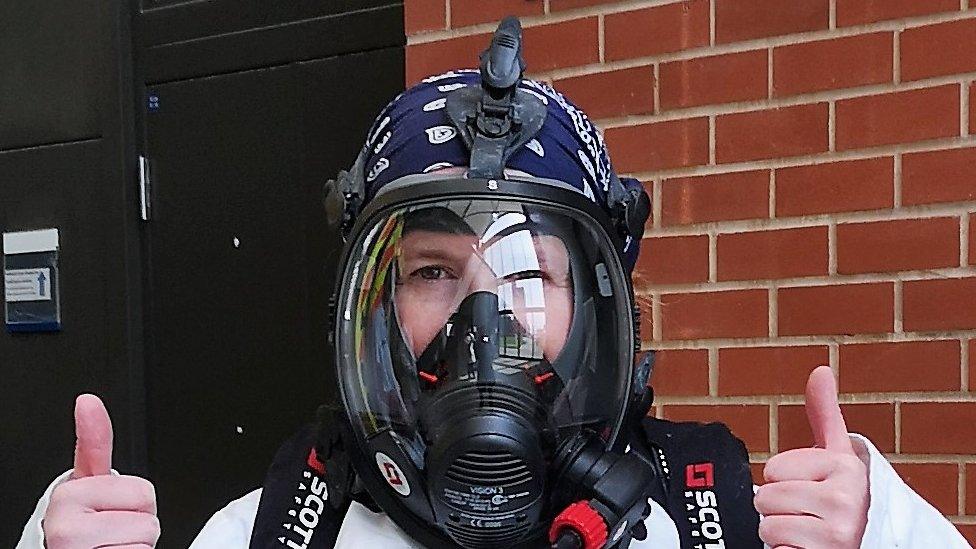
Karen Perkins in breathing apparatus used during tests
It was developed after securing a grant under the Welsh Government's Small Business Research Initiative, external.
From 200 bids, the Swansea University team's proposal was one of just 12 to receive funding to progress their project.
- Published24 March 2020
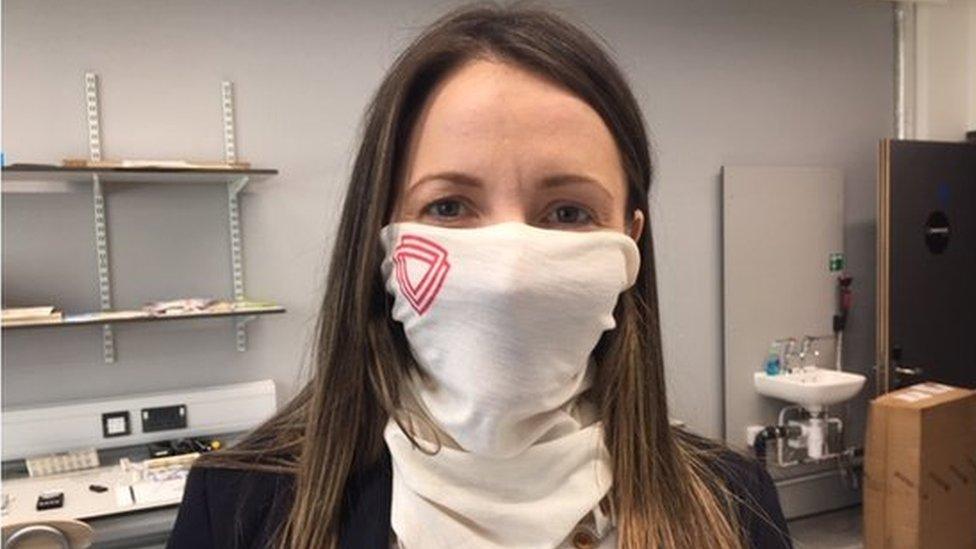
- Published20 April 2020
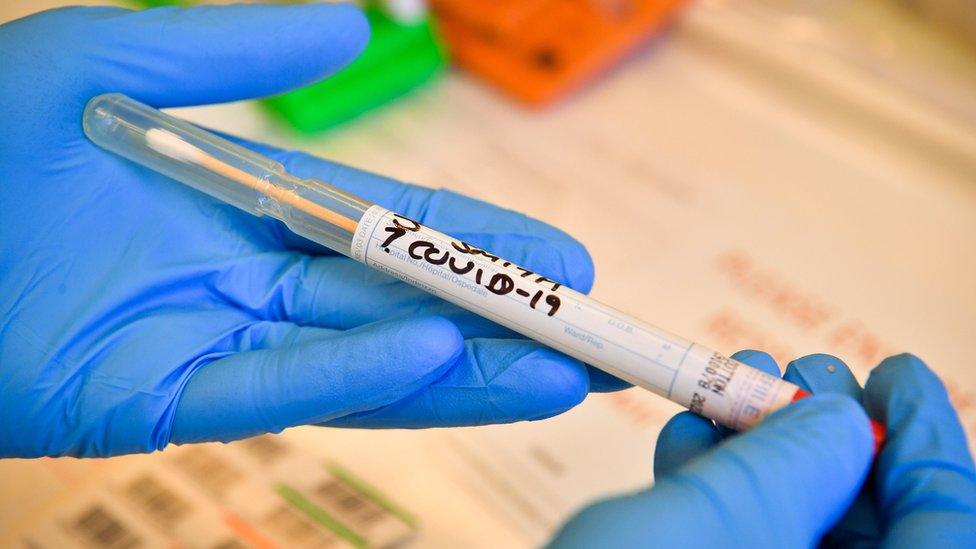
- Published20 March 2020
